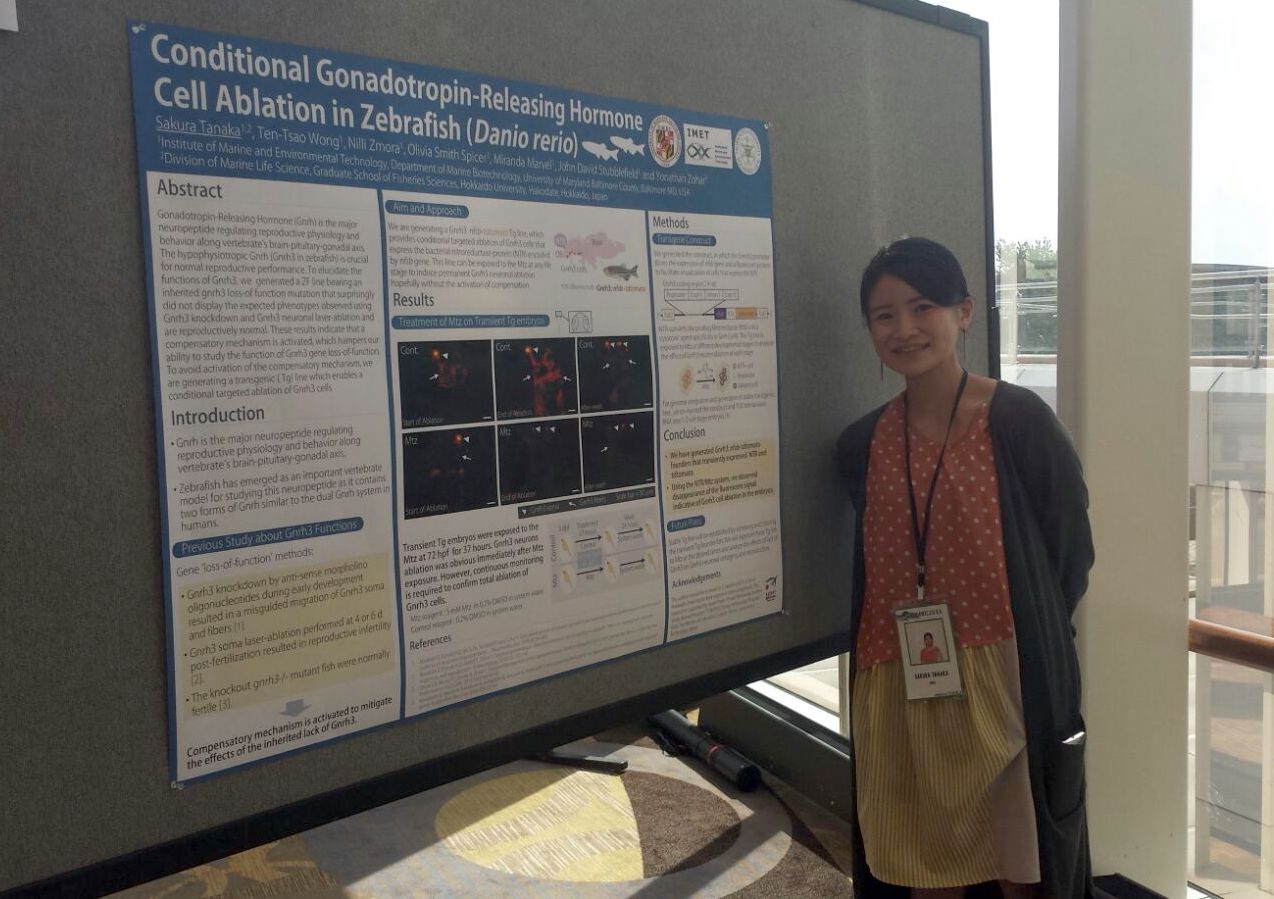First Recipient of the IMET Student Fellowship:Sakura Tanaka
 Sakura Tanaka, recipient of the IMET Student Fellowship, presents a poster on her research
Sakura Tanaka, recipient of the IMET Student Fellowship, presents a poster on her researchSakura Tanaka is from Yokohama, Kanagawa, Japan. She recently defended her Masters thesis in Aquaculture Life Science at Hokkaido University Graduate School of Fisheries. She conducted much of the research for her thesis at IMET, in the Zohar lab. Dr. Zohar said of Sakura, “She was able to learn complicated technology platforms quickly and she was very smart in designing her experiments. It’s natural that she would want to defend her masters in Japan and come back here for her Ph.D.” Sakura is also excited to return to IMET and responded to a couple questions regarding her research and career interests:
What research are you most excited about and why?
I want to understand the functions and interactions of reproduction-related neuropeptides, which are compounds of amino acids found in the brain. In vertebrates, we know that reproduction is driven by the brain-pituitary-gonad axis, in which internal and external cues are translated into hormone signals. Therefore, studying brain neuropeptides is vital to understanding the entire reproductive system of vertebrates. This has important applications in aquaculture because we would like to induce reproduction in some cases, such as for egg and juvenile production. In other cases, we would like to produce reproductively sterile fish, so that farmed fish do not carry the risk of interbreeding with wild stocks.
What are some of your career goals and how is IMET going to help you achieve those?
Through my Ph.D. research and my career, I aim to enable sustainable production of seafood via novel aquaculture technologies, while also preserving natural resources. I plan to apply my research to developing practical solutions in aquaculture. I am confident that the IMET faculty members and students will help me cultivate skills to conduct research and apply scientific knowledge to solving pressing problems concerning the environment and food availability. The combination of coursework, hands-on research under Dr. Zohar’s supervision, and a unique education in entrepreneurship at IMET will prepare me well for a career as an influential fish endocrinologist, helping to improve and advance global aquaculture. I am very grateful to receive the IMET Student Fellowship, which will help me achieve my academic and career goals by supporting my first year of studies.
This fellowship was greatly helped by the support of Dr. James Albrecht, as well as by Michael and Patricia Davis, Donald and Catherine MacMurray, Thomas Lingan, Dr. Haifeng Geng, Bert and Deborah Winchester, James and Christine Wright, and members of the IMET faculty and staff.
Posted: July 24, 2018, 1:59 PM